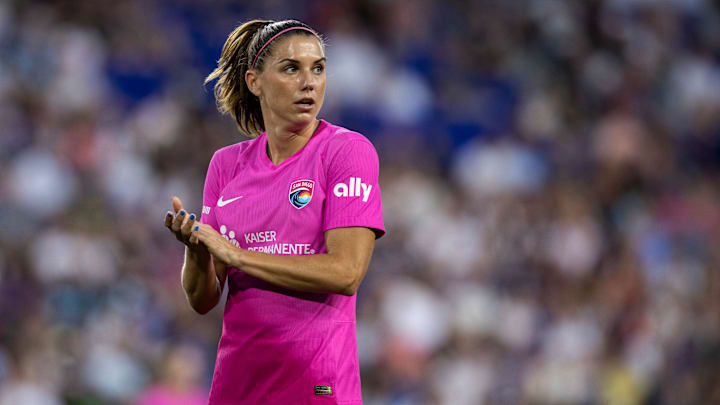When we talk about teams that have left their mark on soccer history, we can’t forget the USWNT, the U.S. women’s national team that shone brightly during the London 2012 Olympics. In that tournament, Alex Morgan etched her name in history with a decisive goal against Canada in the semifinals, a moment forever engraved in the memory of any soccer lover. But now, 12 years later, the scenario is quite different. Alex Morgan, the veteran forward, is not on the USWNT roster for Paris 2024. So, what can we expect from this new phase without one of the team’s key players?
Let's be honest, Alex Morgan is synonymous with goals, leadership, and presence on the field. Since Beijing 2008, she’s been present in all major competitions, serving as the attacking reference. Her absence in Paris 2024 isn’t just a roster change, it’s a major shake-up in the team’s structure. The responsibility to fill this void has fallen on the shoulders of Emma Hayes, the new coach facing her first big test with the national team. Hayes, who already has a respectable résumé in women’s soccer, is now showing her mettle on a global stage without her main forward.
Follow MLS Multiplex on X (Twitter).
Without Morgan, the attacking dynamic changes completely. The team had to reinvent itself, seeking new strategies and new combinations.
Morgan’s absence also meant a tactical shift. Hayes opted for a more mobile attack, with players constantly switching positions, still exploiting the speed and skill of the wingers. This decision had a huge impact on the team’s performance.
The USWNT has always been known for its strength as a group, its ability to play cohesively and determinedly. Without Morgan, this characteristic became even more evident. The players united, supported each other, and played with even more grit. It’s an opportunity for new leaders to emerge, for other players to take on the responsibility.
If the USWNT manages to overcome Morgan’s absence and clinch an Olympic medal, it will be a chance to prove that the team doesn’t rely on a single star, but rather on a strong collective.
Moreover, Morgan’s absence might have been a blessing in disguise. Without the pressure of relying on one player, the team became more unpredictable, harder to mark. Opponents won’t have a clear focal point to concentrate on, which opened up space for creative and surprising plays. Emma Hayes had the chance to shape a versatile team that plays with fluidity and creativity.
Another crucial point is mental preparation. The pressure is immense, and without a veteran leader like Morgan, younger players have to deal with expectations and responsibility. Hayes has to work not just on tactics, but also on the psychological aspect.
